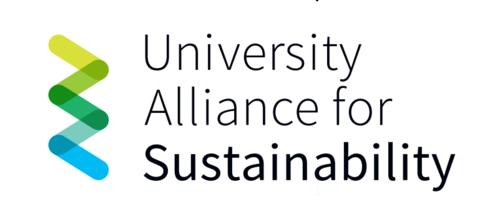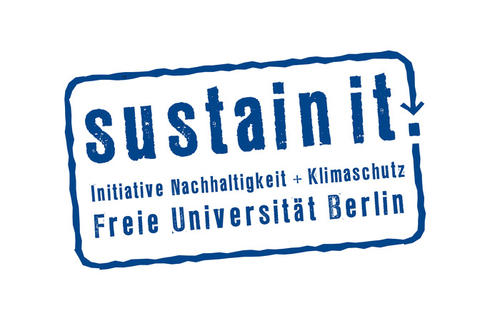Wildlife-Friendly Campus - A Project for Less Waste and Increased Awareness of Urban Nature
Presentation of the project "Wildlife-Friendly Campus - A Project for Less Waste and Increased Awareness of Urban Nature" during the FUturist Matinee on June 22, 2023.
The Idea Team
We are a team of three. Janet Wagner is a librarian with a Master's degree in Education for Sustainable Transformation, coordinates GreenFUBib – Sustainability at the University Library, and is involved in Blooming Campus and Blätterlaube. Leon Salisch is a prospective primary school teacher, coordinates the community garden Blätterlaube, and leads various projects in public relations and biodiversity-promoting area redesign, both on the FU campus and in urban green spaces. Rebecca Rongstock is a doctoral candidate in plant ecology, coordinates Blooming Campus, and leads projects in public relations and research on campus areas.
What connects us is our love for biodiversity in the city. We have experience in initiating projects and diverse connections at the Free University of Berlin.
About the Idea
With the increasing decline of biological diversity in urban spaces, people lack nature experiences and encounters. Blooming areas and wildlife on the campus of the Free University of Berlin should be protected and valued. Waste is generated anew every day. At a large university with over 37,000 students, ensuring environmentally conscious waste disposal in both indoor and outdoor areas of the campus is a challenge.
On the Dahlem campus, around the outdoor areas of the cafeterias (Mensa FU II, Otto-von-Simson-Str.26) and the Japan Mensa (Van’t-Hoff-Straße 6), there are two types of trash cans: for packaging waste and residual waste. The trash cans are completely open, have no lids, and are of low height. In the heavily frequented areas around the cafeterias, a lot of waste is generated daily, especially during the semesters: take-away packaging (plastic waste, composite materials) as well as packaging from surrounding bistros and restaurants (aluminum foil, styrofoam packaging, disposable plastic bags). Almost daily, you can observe how these packages are scattered on the sidewalks, meadows, and traffic areas of the FU.
Crows, martens, foxes, raccoons are wild animals that freely feed on the sometimes odorous packaging waste. Food residues are licked and gnawed. Styrofoam and foils are thus distributed on the campus areas. This way, packaging waste not only ends up on the university's green spaces but also in the stomachs of wild animals.
In the medium and long term, the trash cans on campus should be made more wildlife-safe. In addition, signs should curb the problem of "littering" (discarding & leaving waste). As part of the goals of the FU Climate Emergency Declaration, this is a visible measure addressing the environmental behavior of people who work, study, and spend time on the green spaces and outdoor areas of FU daily. In the long term, the areas of Blooming Campus should be freed from waste, and wildlife-safe trash cans should serve as a learning example for further installations of waste bins on the Düppel and Lankwitz campuses.
Outlook
To create practical and timely solutions that curb the littering problem and protect wildlife from plastic and plastics! Addressing one's own behavior, throwing less waste into nature, or understanding the consequences of waste in the city is an important concern for us - not only for the Dahlem campus but generally, in the sense of environmentally friendly behavior of people throughout the city.
Contact
Rebecca Rongstock - r.rongstock@fu-berlin.de
Janet Wagner - Janet.Wagner@fu-berlin.de
Leon Salisch - leonsalisch@posteo.de




